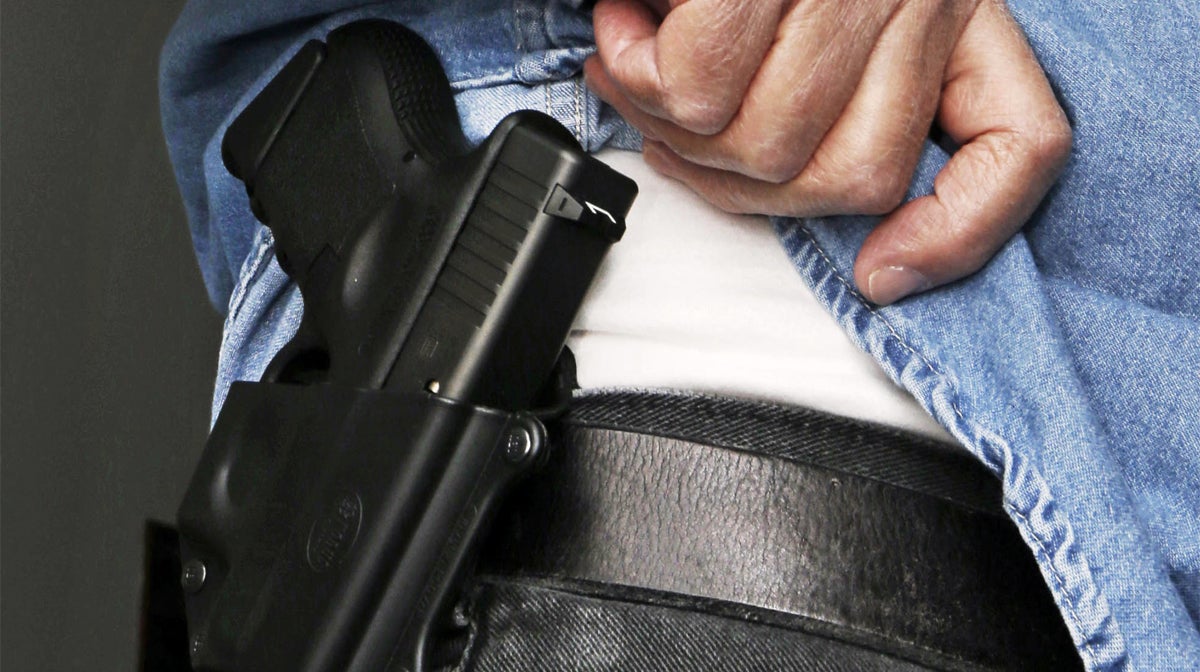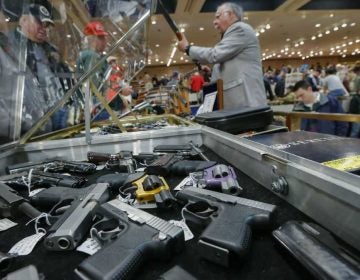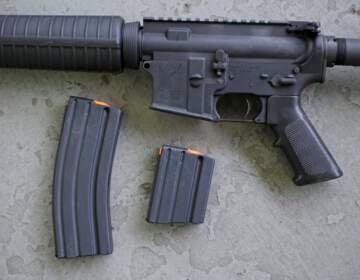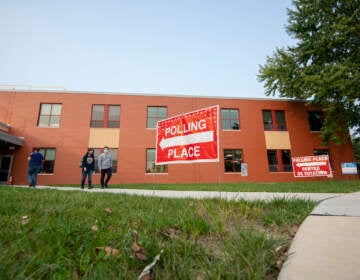Delaware judge rules gun restrictions in state parks unconstitutional
The Delaware State Sportsmen’s Association and other gun advocates took fault with the stipulations and filed a lawsuit.

A man displays his concealed handgun in this 2013 file photo. (AP Photo/Al Behrman, File)
A Delaware judge has ruled certain gun restrictions in state parks and forest land unconstitutional.
The Department of Natural Resources and Environmental Control (DNREC) began developing regulations for carrying firearms in state parks and forests after the Delaware Supreme Court ruled last year that a ban on non-hunting firearms was unconstitutional.
Under the drafted regulations, law enforcement and those with concealed carry permits could carry guns without prohibition. However, other visitors would be forbidden from carrying firearms in several selected “sensitive areas,” unless they could prove it is necessary for defense.
The Delaware State Sportsmen’s Association and other gun advocates took fault with the stipulations and filed a lawsuit.
“The Second Amendment of the U.S. Constitution provides fewer rights to bear arms than the Delaware state constitution, but the federal government, which has many more acres of parks and forests than Delaware does, allows parties to carry their firearms in national parks as long as it doesn’t interfere with any state laws,” said defense attorney Francis Pileggi. “So the federal government is less restrictive than the state of Delaware, even though the rights under federal law are not as broad as they are under Delaware law.”
On Thursday, Superior Court Judge Jeffrey Clark ruled some of the regulations infringe upon the federal and state constitutions.
In particular, the judge agreed with the gun-rights advocates that camp grounds and lodgings should not be designated “sensitive areas.”
“The effect of including camp sites within sensitive areas forces state park and forest visitors to give up their right to self-defense in order to camp overnight in those areas,” Clark wrote.
The judge also agreed with the plaintiffs that regulations permitting law enforcement to check a person’s ID to run a background check without suspicion also violates individual rights.
“Law enforcement officers would have carte blanche authority to conduct background checks of all park visitors at will,” he wrote. “It is in essence a ‘show me your papers’ provision that facially does not pass state or federal constitutional muster.”
Jeff Hague, president of the Delaware State Sportsmen’s Association and treasurer of the Bridgeville Rifle and Pistol Club, said he was pleased the judge agreed the state was overreaching.
“This just validates you have the right to defend yourself or have [a gun] in your vehicle to go camping, to stay at a state park lodge or camp site, and not be in violation of the law,” he said.
While DNREC argued in court that the regulations are meant to protect visitors, Clark and Hague disagree.
“You now have the possibility of someone legally armed to protect you when even the police admit when seconds count, they’re minutes away,” Hague said. “Just showing the firearm in many cases stops a crime from being permitted. Someone allowed to carry a firearm concealed in a state park, or anywhere for that matter, the possibility of stopping that violent act is to your benefit to provide more safety, not less safety.”
A DNREC spokesman said the agency continues to review the decision.
WHYY is your source for fact-based, in-depth journalism and information. As a nonprofit organization, we rely on financial support from readers like you. Please give today.






